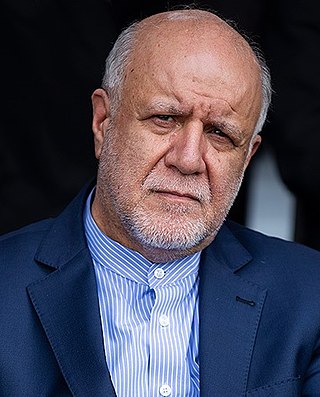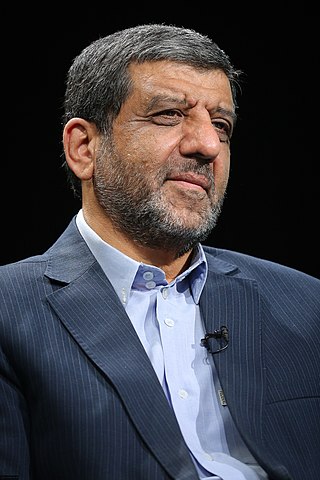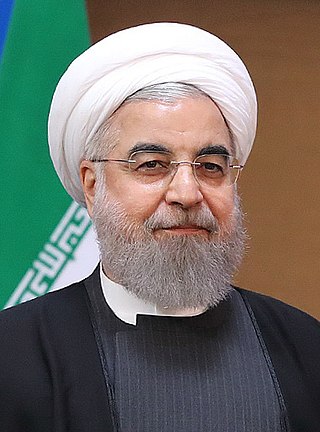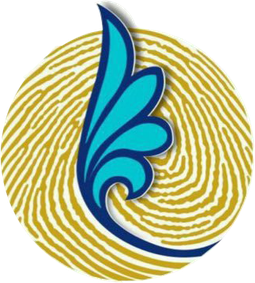| |||||
| Decades: | |||||
|---|---|---|---|---|---|
| See also: | Other events of 2017 Years in Iran | ||||
Events in the year 2017 in the Islamic Republic of Iran.
| |||||
| Decades: | |||||
|---|---|---|---|---|---|
| See also: | Other events of 2017 Years in Iran | ||||
Events in the year 2017 in the Islamic Republic of Iran.


Ali Akbar Hashimi Bahramani Rafsanjani was an Iranian politician and writer who served as the fourth president of Iran from 1989 to 1997. One of the founding fathers of the Islamic Republic, Rafsanjani was the head of the Assembly of Experts from 2007 until 2011 when he decided not to nominate himself for the post. He was also the chairman of the Expediency Discernment Council.

The Expediency Discernment Council of the System is an administrative assembly of Iran appointed by the Supreme Leader and was created upon the revision to the Constitution on 6 February 1988. It was originally set up to resolve differences or conflicts between the Majlis and the Guardian Council, but "its true power lies more in its advisory role to the Supreme Leader." According to Hooman Majd, the Leader "delegated some of his own authority to the council—granting it supervisory powers over all branches of the government" following President Mahmoud Ahmadinejad's election in 2005.

Sharif University of Technology (SUT); (Persian: دانشگاه صنعتی شریف, romanized : Dāneshgāh-e sana'ti-e sharif) is a public research university in Tehran, Iran. Nicknamed "the MIT of Iran", it is widely considered to be the nation's most prestigious and leading institution for science, technology, engineering, and mathematics (STEM) fields. Every year, the smartest and the most prospective students in Iran, ranked according to the results of the Iranian University Entrance Exam, choose to study at SUT at Bachelor's, Master's as well as PhD levels. For those students who wish to study STEM related fields, especially the most popular ones such as Computer engineering, Electrical engineering and Mechanical engineering, Sharif University of Technology is the toughest Iranian university to get admission to.

Ali Ardeshir Larijani is an Iranian politician and former military officer in the Islamic Revolutionary Guard Corps, who served as the Speaker of the Parliament of Iran from 2008 to 2020. He has been a member of the Expediency Discernment Council since 2020, having previously served from 1997 to 2008. Larijani filed for candidacy in the 2024 presidential election, but was ultimately disqualified. He previously ran in 2005, but was disqualified from running in 2021.

Ali Akbar Velayati is an Iranian conservative politician and physician. He is currently a member of the Expediency Discernment Council. Velayati is a distinguished professor at Shahid Beheshti University of Medical Sciences, senior adviser to the Supreme Leader in international affairs and head of the board of founders and the board of trustees of the Islamic Azad University.

Mohammad Bagher Ghalibaf is an Iranian conservative politician, former military officer, and current Speaker of the Parliament of Iran since 2020. He held office as the Mayor of Tehran from 2005 to 2017. Ghalibaf was formerly Iran's Chief of police from 2000 to 2005 and commander of the Revolutionary Guards' Air Force from 1997 to 2000.

Ayatollah Mohammad Reza Mahdavi Kani was an Iranian Shia cleric, writer and conservative and principlist politician who was Prime Minister of Iran from 2 September until 29 October 1981. Before that, he was Minister of Interior in the cabinets of Mohammad-Ali Rajai and Mohammad-Javad Bahonar. He was the leader of Combatant Clergy Association and Chairman of the Assembly of Experts and also founder and president of Imam Sadiq University.

Bijan Namdar Zangeneh is an Iranian politician, who served as minister, at different cabinets after the Islamic Revolution, for 30 years. He lately served as Minister of Petroleum from 2013 to 2021 in the cabinet led by Hassan Rouhani.

Maryam Mirzakhani was an Iranian mathematician and a professor of mathematics at Stanford University. Her research topics included Teichmüller theory, hyperbolic geometry, ergodic theory, and symplectic geometry. On 13 August 2014, Mirzakhani was honored with the Fields Medal, the most prestigious award in mathematics, becoming the first woman to win the prize, as well as the first Iranian. The award committee cited her work in "the dynamics and geometry of Riemann surfaces and their moduli spaces". Mirzakhani was considered a leading force in the fields of hyperbolic geometry, topology and dynamics.

Sayyid Ezzatollah Zarghami is an Iranian conservative politician and former minister of Ministry of Cultural Heritage, Tourism and Handicrafts. He is a former military officer. Zarghami was Deputy of Minister in Culture and Islamic Ministry as well as Defence Ministry before holding office as the head of Islamic Republic of Iran Broadcasting from 2004 to 2014.

Moderation and Development Party is a political party in Iran. It is a pragmatic-centrist political party which held its first congress in 2002.

Hassan Rouhani is an Iranian politician who served as the seventh president of Iran from 2013 to 2021. He is also a sharia lawyer ("Wakil"), academic, former diplomat and Islamic cleric. He served as a member of Iran's Assembly of Experts from 1999 to 2024. He was a member of the Expediency Council from 1991 to 2013, and also was a member of the Supreme National Security Council from 1989 to 2021. Rouhani was deputy speaker of the fourth and fifth terms of the Parliament of Iran (Majlis) and Secretary of the Supreme National Security Council from 1989 to 2005. In the latter capacity, he was the country's top negotiator with the EU three, UK, France, and Germany, on nuclear technology in Iran, and has also served as a Shia mujtahid, and economic trade negotiator.

Mohammad Shariatmadari is an Iranian politician and current CEO of Persian Gulf Petrochemical Industries Corporation since December 2024.

Hassan Rouhani, a moderate Iranian politician and former Secretary of the Supreme National Security Council, also known as the Diplomat Sheikh, launched his presidential campaign in March 2013. He was earlier expected to withdraw and endorse Ali Akbar Hashemi Rafsanjani after he registered, but he returned to the race after Hashemi's disqualification. The symbol of Rouhani's campaign was a key and his slogan was "Government of Prudence and Hope." On 15 June, he was elected as the president with 18,613,329 votes.

Mohammad Nahavandian is an Iranian politician and economist who served as the Vice President for Economic Affairs. He was formerly Chief of Staff of the President of Iran, serving from 2013 until 2017.

Parliamentary elections were held in Iran on 26 February 2016 to elect members of the Islamic Consultative Assembly for all seats in the 10th parliament in the Islamic Republic era and the 34th since the Persian Constitutional Revolution. A second round was held on 29 April 2016 for some constituencies where candidates failed to obtain the required minimum 25 percent of votes cast. The elected MPs served from 28 May 2016 to 27 May 2020.

Pervasive Coalition of Reformists: The Second Step, named The List of Hope by Mohammad Khatami, was the sole coalition and electoral list affiliated with the Iranian reform movement for the 2016 legislative election. The group also endorsed candidates for the 2016 Assembly of Experts election. Reformists backed a list of 236 candidates for the Parliament and 77 for the Assembly of Experts, even though many of them are not reformists but moderate-leaning figures.

On 8 January 2017, Akbar Hashemi Rafsanjani, the fourth President of Iran and the country's Chairman of Expediency Discernment Council, died at the age of 82 after suffering a heart attack. He was transferred unconscious to a hospital in Tajrish, north Tehran. Attempts at cardiopulmonary resuscitation for more than an hour trying to revive him were unsuccessful and he died at 19:30 local time (UTC+3:30).

The 2017 Tehran attacks were a series of two simultaneous terrorist attacks that occurred on 7 June 2017 that were carried out by five terrorists belonging to the Islamic State of Iraq and the Levant (ISIL) against the Iranian Parliament building and the Mausoleum of Ruhollah Khomeini, both in Tehran, Iran, leaving 17 civilians dead and 43 wounded. The shootings were the first terrorist attacks in Tehran in more than a decade, and the first major terror attack in the country since the 2010 Zahedan bombings.
The reactions to the 2017 Tehran attacks include the responses by political and religious leaders, media and the general public, both within Iran, where the 2017 Tehran attacks took place, and from other nations and international organizations. Numerous notable establishments around the world also held memorials.